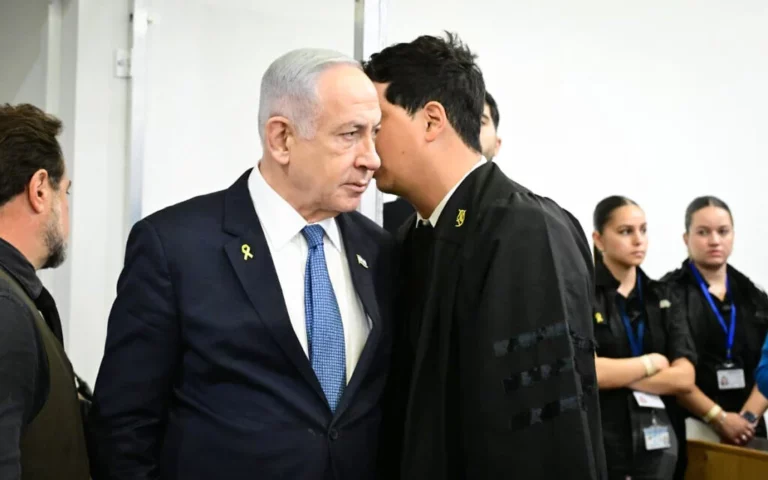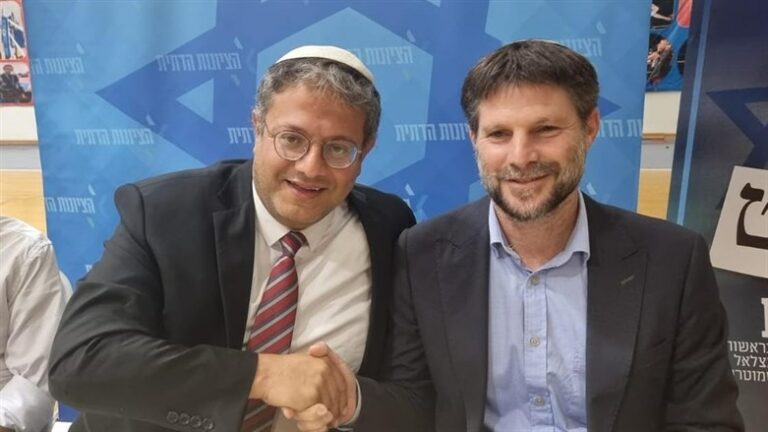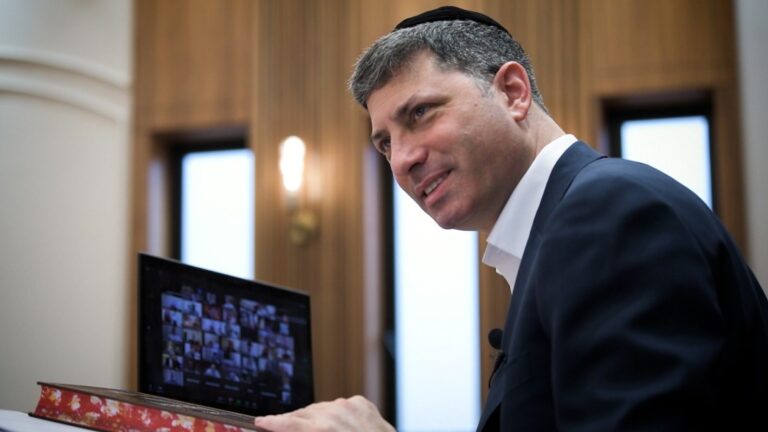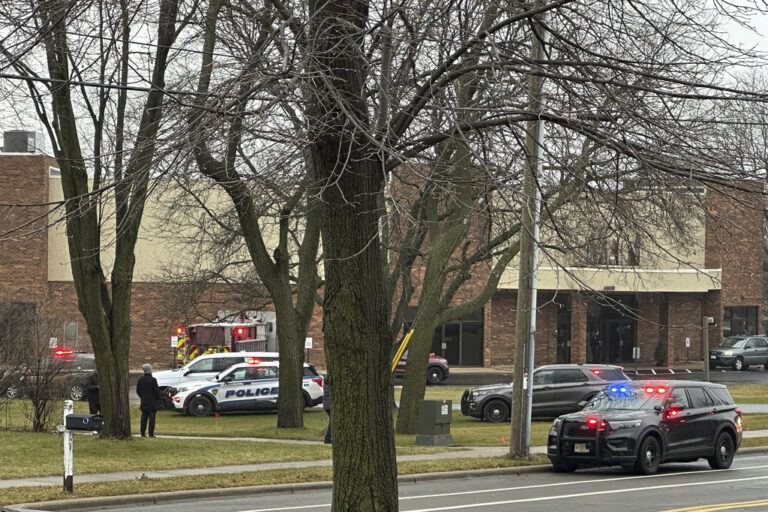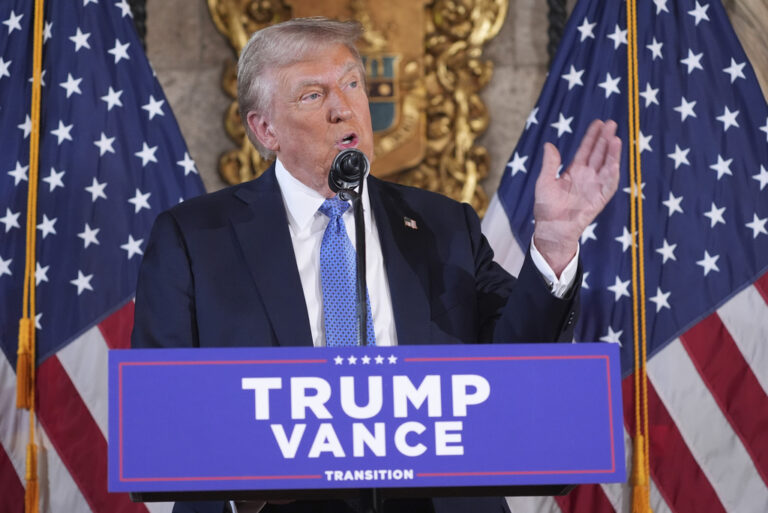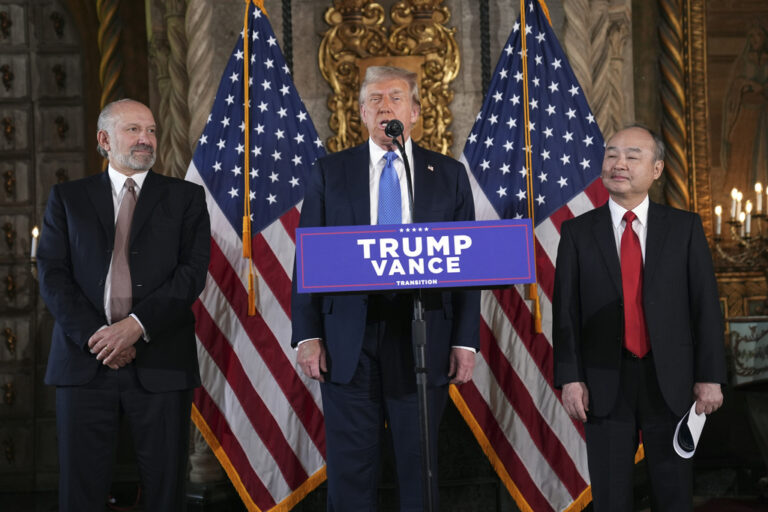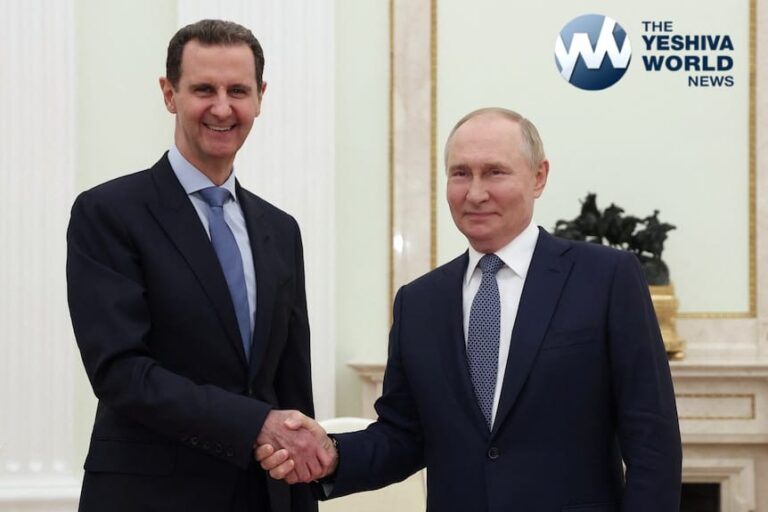Prime Minister Benjamin Netanyahu defended his receipt of notes from aides during his corruption trial testimony in Tel Aviv on Monday, arguing it was necessary for balancing his role as prime minister with court proceedings.
Following a break in the trial, during which Netanyahu was seen responding to a note handed to him by an aide, the prosecution questioned the practice, arguing the content of such notes should be known to both the judges and prosecutors. Netanyahu responded forcefully, asserting that it was impractical to consult the court on every note he received.
“I want to give my testimony. But I am the prime minister,” Netanyahu said, noting the unique challenges of his dual responsibilities. His defense team, led by Amit Haddad, also criticized the investigation’s alleged haste, pointing to a statement by a police investigator boasting about the rapid pace of the probe.
“Why did you run?” Netanyahu asked rhetorically, calling it “the fastest investigation ever.” He argued that investigators had failed to ask sufficient questions, provide necessary materials, or offer him adequate opportunities to respond to allegations. Haddad reinforced this criticism, stating the defense would carefully scrutinize all 315 items related to the bribery charge to make up for what he claimed was the investigators’ negligence.
Netanyahu also dismissed claims that a mutual acquaintance, Zeev Rubinstein, acted as an intermediary between him and co-defendant Shaul Elovitch, owner of Walla and Bezeq. Prosecutors allege the arrangement involved favorable media coverage for Netanyahu in exchange for regulatory benefits to Elovitch’s businesses.
“If I wanted to contact Elovitch, I could have picked up the telephone,” Netanyahu said, arguing it was implausible that he would use intermediaries during a critical election campaign. He added that Rubinstein, often in a different time zone, lacked the necessary understanding of Israeli politics to act effectively in such a role. According to Netanyahu, Rubinstein’s actions, if any, were motivated by a personal desire to please Netanyahu’s wife, Sara.
Defense attorneys pointed to several Walla articles critical of Netanyahu and his Likud party to counter claims of a media bribery scheme. Netanyahu highlighted that some articles were damaging to his campaign, including one that omitted a response from Likud—a standard practice he described as the “bare minimum” for journalistic fairness. “If there was a bribery scheme, why wouldn’t I ask Elovitch why Likud’s position wasn’t included?” Netanyahu asked.
Netanyahu concluded, “The indictment is collapsing,” asserting there was no evidence of him requesting favorable coverage from Walla.
Proceedings were briefly interrupted by rocket alerts in Tel Aviv on Monday afternoon. One judge urged the session to continue once the situation stabilized, stating, “Let’s continue, that’s why we’re here.”
Netanyahu’s legal team requested the cancellation of Tuesday’s session, citing “exceptional” circumstances. The judges agreed, after reviewing a confidential explanation provided in writing, and asked the media and audience to leave the chamber for private deliberations.
Netanyahu is currently defending himself in three cases:
Case 4000: Allegations of bribery involving favorable policies for Elovitch’s Bezeq telecom in exchange for positive coverage on Walla.
Case 2000: Claims that Netanyahu sought legislative measures to weaken Yisrael Hayom in return for favorable coverage from Yediot Aharonot publisher Arnon Mozes.
Case 1000: Accusations that Netanyahu received lavish gifts from businessman Arnon Milchan in exchange for advancing his interests.
Netanyahu has consistently denied all charges, claiming the cases are politically motivated.
(YWN World Headquarters – NYC)

